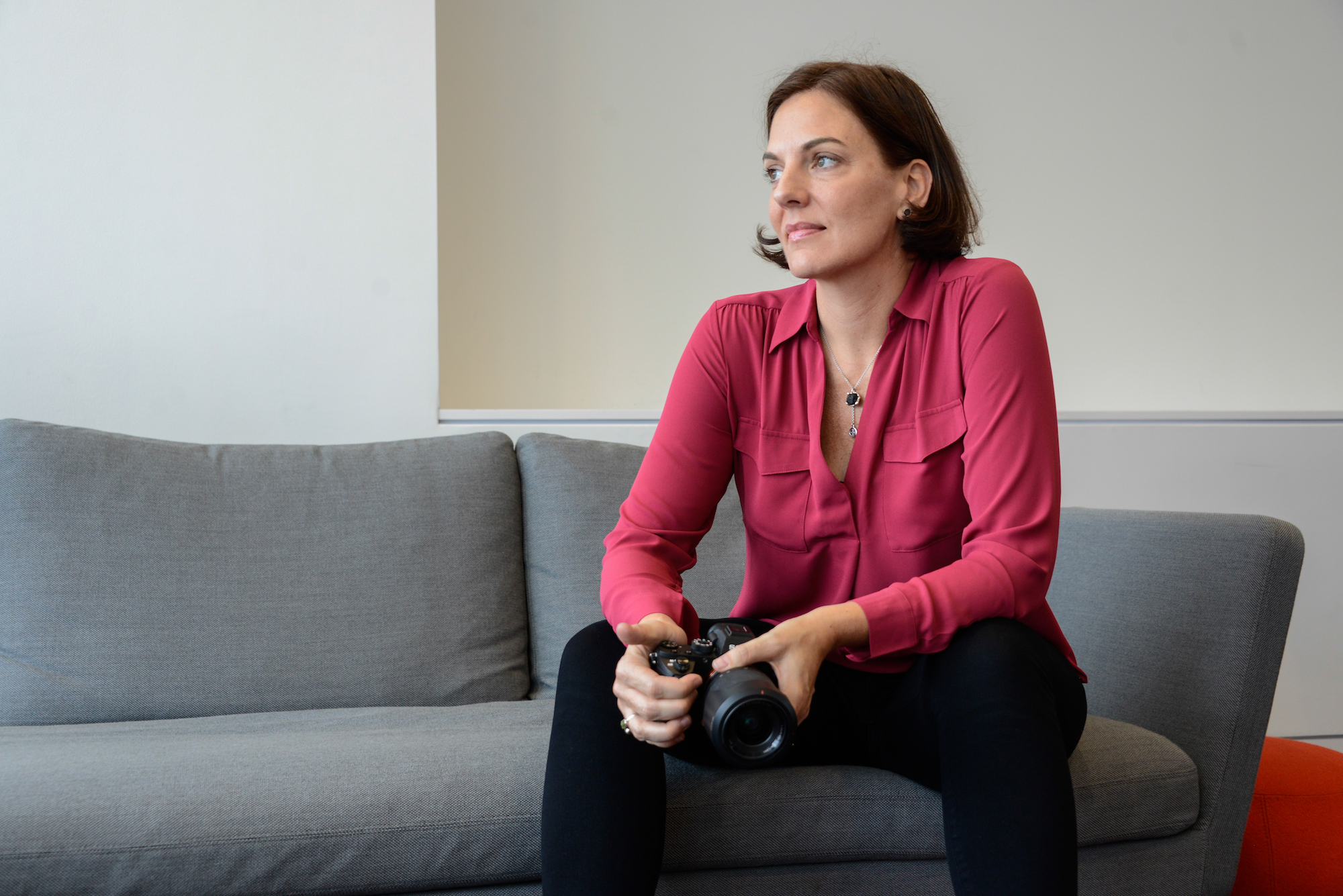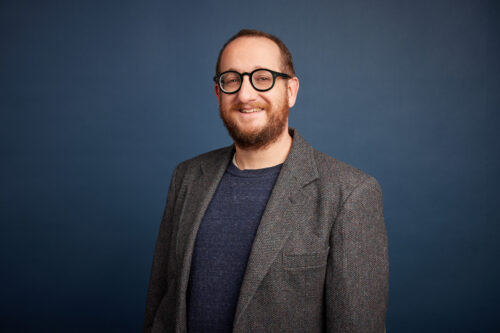Feature
Behind the Lens: Cecily Tyler Is Building a New Generation of Citizen Storytellers
Cecily Tyler is building a new generation of citizen storytellers

With camera equipment often in tow, Cecily Tyler MC/MPA 2016 has been a familiar face at the Ash Center since graduating from the Kennedy School three years ago. Tyler, a documentary filmmaker, has worked with scores of students at the Center since starting to teach videographic essay-making skills as part of Ash Center resident faculty affiliate Jorrit de Jong’s Innovation Field Lab course.
For Tyler, the Field Lab served as an exciting—and highly successful—experiment in introducing filmmaking as a pedagogical tool at HKS. “The students are not just sitting in the classroom, consuming information and synthesizing academically, but they’re actually out in the field, learning about how to support and create innovation in the public sector,” Tyler said.
She came to the mid-career program at HKS after working as a TV and film producer and later partnering with YouthBuild USA, a nonprofit based in Somerville, Massachusetts, which provides job skills training and counseling services to unemployed young adults. Tyler collaborated with YouthBuild program participants on video projects, observing that “every time you get behind the camera, you have this extraordinary opportunity to learn in ways that you don’t otherwise.” This experience resonated with Tyler, who thought about how she could use graduate school as an opportunity to meld the art of filmmaking with policy-oriented learning, focused on government and social change. “It was pretty clear that HKS was the place I should be to do this,” she recalled.
In 2015, Tyler enrolled in the mid-career MPA program and immediately dove into the course offerings at the School. She had heard about de Jong’s Innovation Field Lab (IFL), an experiential learning course supported by the Ash Center that embeds students in a number of medium-sized cities in Massachusetts (and now is expanding to New York State) to help develop and implement policies to combat problem properties. But with a packed course calendar and graduation looming that spring, Tyler was not able to fit the course into her already overloaded schedule.
That summer, with a newly minted MPA in hand, Tyler was accepted as a fellow at the Harvard i-lab to help incubate and launch a nonprofit to harness filmmaking and technology to create social good called docutribe. Searching out quantitative data analysis for a project she was working on about Boston, an i-lab colleague suggested she connect with de Jong, whose work with the IFL by then had helped build his reputation for deploying innovative pedagogical tools in the classroom.
De Jong’s response was to partner with Tyler to help students in the spring 2017 Field Lab create videographic essays in the classroom as a learning tool. Plus, “you’ll end up learning about quantitative data in the end,” Tyler recalled de Jong promising. “So we both went and started figuring out how to bring videographic essay-making into classrooms here at HKS so that students could begin to experience what I experienced over the course of my 25-year profession.”
By using smartphones, Tyler transformed IFL students into budding filmmakers by providing them with basic filming and editing lessons, as well as teaching them how to build story and narrative into their films.
For Tyler and de Jong, the goal in creating these digital essays was that students would deepen their understanding of the policy problems IFL was hoping to disrupt, including the assumptions hindering new learning and new perspectives on how to address these challenges. In addition to the novelty of using filmmaking as a classroom tool, the two hoped that shooting videos for class would help students internalize what it’s like to “come into a place that you aren’t from and really, truly affect social change.”
At the conclusion of that iteration of the Field Lab, a group of students Tyler had worked with voiced that they wanted to continue their essay-making, which prompted her to start a not-for-credit study group to make available the trainings for students from across the University community. “We had 20 individual teams of filmmakers working on projects as diverse as public health, racism, and economic inequality as part of the study group,” recalled Tyler. “I was incredibly impressed with what these students created. We all know that to even find an extra ten minutes of time while getting a degree at Harvard is a challenge. They found the time to learn something they weren’t expert in and made amazing videos.”
The media world, Tyler points out, is undergoing an upheaval. Print and television journalism is in the midst of dramatic disruption, and new technologies are democratizing the creation and distribution of content. By training a new generation of citizen journalists and storytellers, albeit with smartphones as opposed to pad and pen, Tyler hopes she can “put the right tools into the hands of people who can tell stories and drive social change.”
